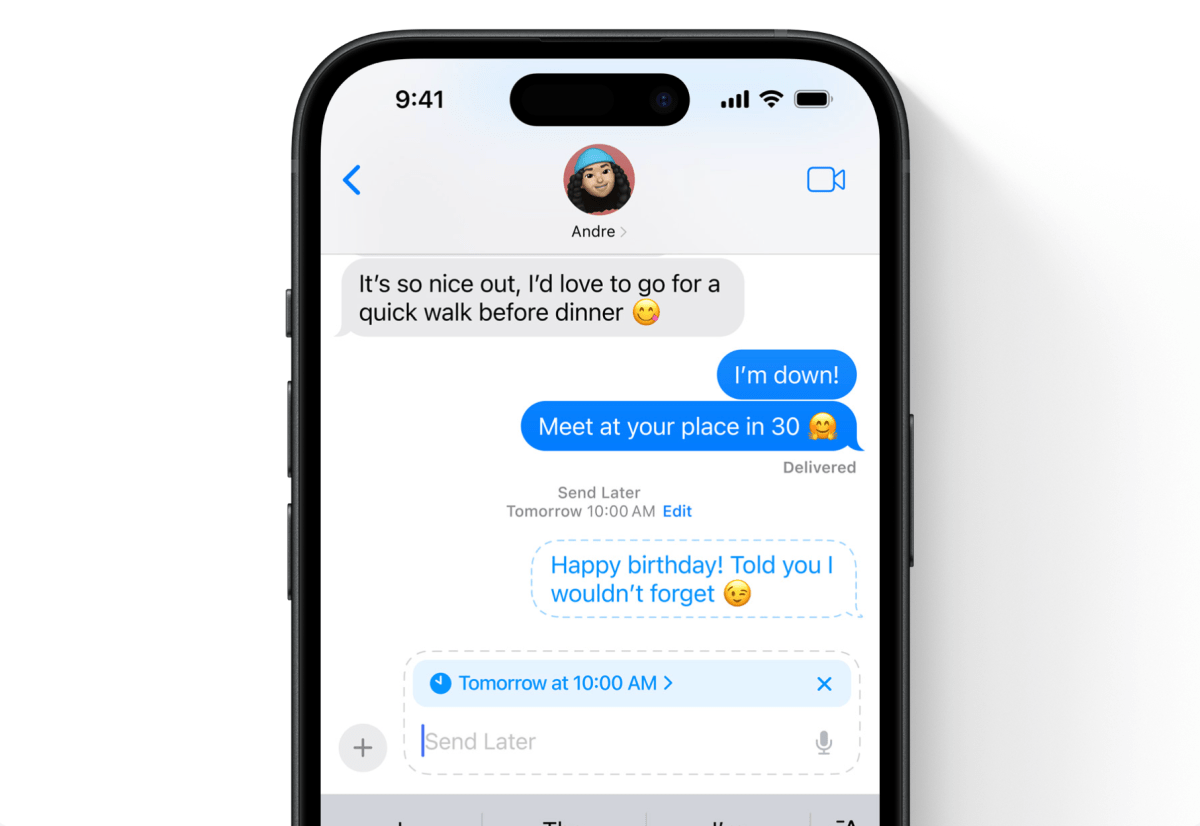The highly anticipated release of iOS 18 brings with it a host of exciting updates and features to iMessage and the Messages app. While AI emoji and Genmoji may have captured the initial attention, it’s the smaller tweaks that will have the biggest daily impact for users.
One such update is the long-awaited ability to schedule messages for a later date and time. This built-in functionality finally puts an end to the need for complicated workarounds, such as third-party apps or jailbreaking, to achieve this basic function. As casually mentioned at the WWDC 2024 keynote, this feature will be a gamechanger for iPhone users who run businesses or have a tendency to remember important messages at 3 a.m. in the morning. Plus, with the added bonus of not disturbing those in different time zones, it’s clear that Apple has been listening to user demands and working towards creating a more seamless messaging experience.
In addition to scheduled messages, iOS 18 also brings support for the next-gen messaging standard, RCS. This long-awaited upgrade will finally bridge the gap between iPhone and Android users, addressing the limitations and frustrations of texting with the dreaded green bubble.
For a long time, Google has been lobbying for Apple to adopt RCS, as it would greatly improve the communication experience between Android and iOS users.
With features like typing indicators, read receipts, and reliable group messaging, RCS has been a must-have for U.S. teens and has been heavily campaigned for by Google. While EU regulators did not force Apple to make iMessage interoperable with other messaging services, the added scrutiny likely played a role in their decision. And with U.S. lawmakers taking an interest in Apple’s shutdown of third-party app Beeper, which allowed Android users access to iMessage, it’s clear that pressure has been mounting for Apple to make changes.
Unfortunately, Android users will still face the dreaded green bubble when messaging with iOS devices using RCS. However, Apple has stated that it will support the standard later this year, addressing any previous limitations or inconveniences that have plagued their customers.
Issues such as broken group chats, blurry media, and lack of end-to-end encryption will soon be a thing of the past for iPhone users when communicating with Android friends.
While earlier reports indicated that Apple may support end-to-end encryption in the Universal Profile for RCS, it seems this will not be implemented at launch. As stated in their press release, RCS will still offer “richer media and more reliable group messaging compared to SMS and MMS.”
In a sea of flashy AI announcements and UI tweaks, it’s clear that Apple’s focus on simplifying and improving the messaging experience for users is a significant step towards creating a more seamless and efficient way to communicate. With the release of iOS 18 and its slew of iMessage and Messages app updates, it’s an exciting time for Apple users and their messaging capabilities.








